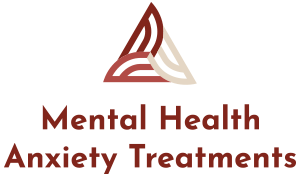If you’re struggling with a dual diagnosis, reach out to a mental health treatment center for professional help. An estimated 9.2 million people in the US suffered from dual diagnosis in 2018. This can lead to severe consequences, but dual diagnosis treatment programs will facilitate your recovery.
The US National Library of Medicine (NLM) defines dual diagnosis as a condition whereby an individual exhibits a mental illness and a substance use disorder. The NLM further states that about half of individuals battling mental illnesses experience a drug-related issue at some point in life.
What Are the Signs of Dual Diagnosis?
To determine whether you’re suffering from dual diagnosis or a different condition, a mental health professional must first conduct an evaluation. However, you don’t need an expert to establish whether something is wrong with you or a loved one.
According to the American Psychiatric Association (APA), you should check for the following warning signs:
- Someone abandoning old activities for a new lifestyle
- Struggling to complete essential tasks, such as schoolwork or workplace responsibilities
- Hiding your mental health condition or substance use from loved ones
- Trying to quit the substance, but always relapsing
- Seeking large doses of the drugs and experiencing withdrawal symptoms if you stop using
Mental illness manifests through different symptoms, but the most common include:
- Withdrawing from family members, friends, and turning down help
- Fear, apprehensiveness, worthlessness, guilt, and lack of peace
- Difficulty in concentrating
- Dramatic and unusual mood swings, which include violence
- Relying on substances to calm one’s emotions and overcome compulsive behaviors
- Anxiety and panic attacks
The symptoms co-occur depending on your conditions, so to determine what you’re suffering from, consult a medical expert. Therapists will review your psychiatric and substance use history to establish which program is ideal for your condition. Rehab centers use the combination of several dual diagnosis treatment programs to create a customized treatment plan.
Studies reveal that most individuals suffering from dual diagnosis fail to seek professional help because of fear of judgment. In such a case, you’ll need medical intervention and anxiety treatment programs to manage the condition.
Insight Into Dual Diagnosis Treatment Programs
Dual diagnosis treatment is a unique 21st-century recovery program that incorporates the best aspects of substance abuse and mental health care programs. Instead of struggling to distinguish between addiction disorders and mental illnesses, as was the case in the past, health experts combine them to offer treatment concurrently.
Mental health experts have relevant training on how to diagnose and treat co-occurring disorders. In rehab, mental health treatment programs offer many people relief from the symptoms of dual diagnosis.
You’ll need dual diagnosis treatment for a complete recovery when you’re diagnosed with a mental disorder (such as anxiety, schizophrenia, or bipolar disorders) and a substance use disorder (such as alcoholism, prescription drug addiction, or sex addiction).
Treatment Options for Dual Diagnosis
In a rehab facility, there are several treatment options available for this condition. Once the doctor has ascertained that you’re suffering from dual diagnosis, you’ll work together to create a customized treatment plan.
For the best results, rehabs combine several treatment programs, such as:
- Medically-assisted detox
- Inpatient rehab treatment
- Cognitive-behavioral therapy (CBT)
- Dialectical behavior therapy (DBT)
- Individual and group therapy
Are you suffering from a dual diagnosis? Don’t struggle with your condition when you can get the much-needed help at rehab. You’ll be glad to know that this condition is entirely treatable through a variety of dual diagnosis treatment programs.






